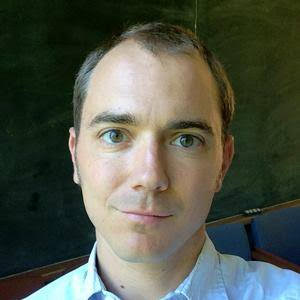For these Sunday posts in January, I want to listen to how people with immigration or refugee experiences find sustenance and purpose in difficult times.
Atiqullah and I met through our sons, who share a grade-school classroom, a recess soccer field, and a fondness for Lionel Messi. Unlike my son, who has only an 8-year-old’s sense of how safe his life has been, his friend fled Afghanistan in the evacuation of August 2021. His father’s police work with the U.S. military meant the resurgent Taliban would try to kill him, if given the chance.
After stops in Kuwait, Washington, D.C., and an army barracks in Wisconsin, Atiqullah (pronounced ah-TEE-ku-lah) arrived in Grand Rapids with his wife and their four sons, knowing very little English. We first met at after-school pickup time, our boys running off to the soccer field as we talked.
A few days later, we met at his home, joined by Jamey, an informal sponsor of the family. Atiqullah’s wife, Mozlifa (moze-LEAF-ah), brought us a tray of almonds, pistachios, and strong sweet tea. Their youngest son, shy and excited at the stranger in the house, monkeyed across his father’s shoulders.
Atiqullah told us about their home in Kandahar. He scrolled through his photo reel, showing his children when they were younger; himself in security uniform with fellow officers; and his brother, mother, and his wife’s family, who all remain in Afghanistan. He had saved quite a few photos from elsewhere depicting Kandahar – towering statues, ornate mosques, a nighttime street celebration, and lush green hills and turquoise waters outside the city.
When he and his family arrived in Michigan, they were sponsored by the non-profit organization Samaritas and a local church, but that support tapered off over the first year. Beyond the immediate needs of home, employment, and schooling, Jamey told me, there are countless hurdles to adjusting to life here. Everything from healthcare forms to appointments to state benefit cards requires navigating bureaucracy and language (Mozlifa, like many women of her generation, had no chance for education or literacy in Afghanistan). At school there are report cards, parent-teacher conferences, and permission forms to figure out, and on and on.
Atiqullah obtained a driver’s license and a car and drove to Lansing for a toshak, a traditional Afghan floor cushion. He found work at a nearby auto parts plant – no step forward from his police work, but a steady job. The family met a few fellow Pashto speakers at school and more at a local mosque. They call and Facetime frequently with family in Afghanistan, whom they will likely never see again.
In their family room, his pre-school-age son peering from behind his back, Atiqullah and I did our best to converse. What do you ask when both loss and life-changing safety loom so large? I asked how he liked his job, and immediately realized it was the wrong question.
He shrugged, searching for words.
“It’s a job, right?” Jamey offered. “We all know what that’s like.”
Atiqullah nodded. He was generous and willing to converse, and I wished I’d planned ahead to find a translator. I tried a few more questions. What’s been hardest about life in the U.S.? What’s been most helpful?
He paused. “I’m just new. Everything is …”
“Different,” Jamey offered.
“Different,” he said. ”Yeah.”
As with my Ukrainian friend Olesia, it’s not my role to draw lessons from someone else’s story. Since the Taliban returned to power, the Afghan economy has collapsed, with no functioning banking system and poverty rates above 90 percent. A series of earthquakes have compounded the suffering, and the Taliban has prioritized revenge killings and extreme discrimination of women and girls. Aid experts say the only foreseeable way to alleviate extreme hunger is to partner with the Taliban in reconstructing a functional economy.
I don’t have insight into that terrible dilemma. I do know that Atiqullah and Mozlifa’s children are learning English astoundingly fast at our local public school. Their teachers, paraprofessionals, and principal do extraordinary work accommodating immigrants from multiple countries into their classrooms. My son, whether he knows it or not, has a richer life (and better soccer skills) because of his friend from across the world.
The first time we met, Atiqullah apologized for his limited English. It’s better than my Pashto, I told him. I’m grateful for his willingness to offer glimpses into his family’s life: Finding familiar foods at Super Green Market. Celebrating the end of Ramadan at the mosque with Muslims from around the world. His oldest son on Halloween, in tribute to his father’s former career, dressing up as a police officer.
Photo courtesy Atiqullah Ayubi.


4 Responses
Thanks for sharing this story.
I find immigration stories inspiring, humanizing, humbling.
I hear some from my daughter who teaches ELL students too.
With a prayer that God will bless Atiqullah and Mozlifa and their sons.
And the people of Afghanistan.
To read what matters. To savor writing that disappears into content. Well, ya can’t tell the dancer from the dance.
I’ve always wanted a brother. I sure admire the brothers Jonathan and Mark.
It is easier to find Dari translators in GR than Pashto ones. I hope your friend can find some fellowship in the Afghan gatherings at the West Michigan Friendship Center as well.
This story moved me. We need such stories to humanize the news and the statistics.